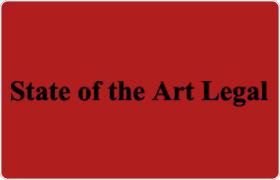 Fort Lauderdale DUI-DWI Lawyers, Florida
Fort Lauderdale DUI-DWI Lawyers, Florida
Sponsored Law Firm
-
 x
x

Click For More Info:
-
State of the Art Legal
200 S.E. 1st Street Suite 505 Miami, FL 33131» view mapCriminal Defense Law Expert Legal Defense
If you're facing a difficult situation, you may benefit from having a lawyer from State of the Art Legal represent you. Call our office in Miami, FL, to set up your appointment.
800-826-0121
Lawyers
<
21-21 of 21 matches
Medical Malpractice, Elder Law, DUI-DWI, Workers' Compensation, Industry Specialties




 Joshua Alexander Miami, FL
Joshua Alexander Miami, FL Practice AreasExpertise
Practice AreasExpertise